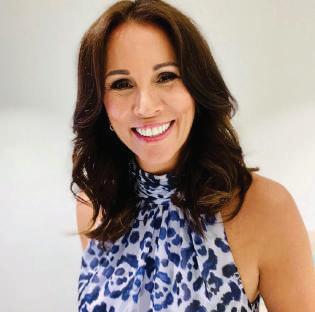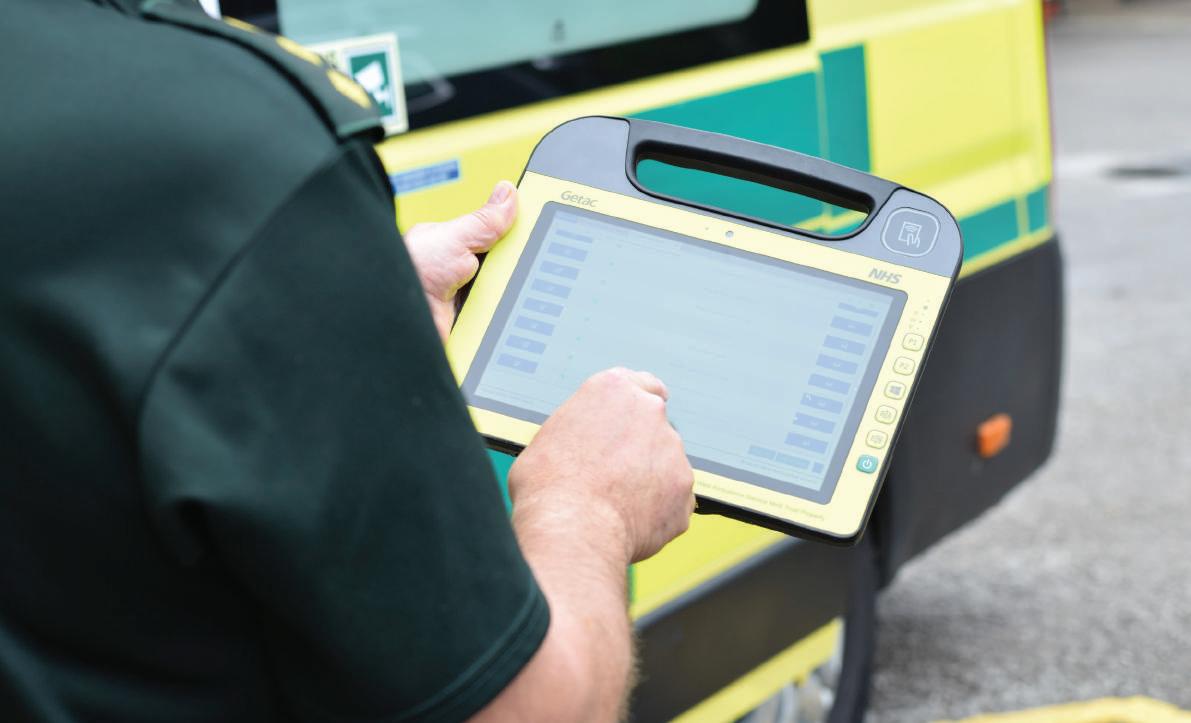
3 minute read
Saying 'I'm fine' to the world may not be enough
One thing that hasn’t changed with the pandemic is the struggle with mental health. We’ve seen a 20.5 percent increase in mental health related calls to our 999 service from March to August this year, compared to the same period last year.
It is no coincidence that many celebrities have chosen this time to talk about their own struggles with mental health across their media platforms. From singer-songwriter Anne Marie who opened up to Mind charity about her mental health problems as a teenager, to Loose Women presenter Andrea McLean who recently talked openly about her breakdown in 2019.
Both of their stories and experiences share a common factor - they both suffered in silence. It wasn’t until they accepted they were ill, reached out for help and began to talk about their mental health did they start to feel better. Saying ‘I’m fine’ to the world may not be enough. The take home message is to try and get help when you are struggling - it is a basic human need to help us feel connected in order to survive.

Picture: Instagram

Picture: Instagram
How to access help?
If you're concerned about yourself or a loved one, there are mental health charities, organisations and support groups that can offer expert advice.
Mind charity is a great place to start, it has lots of tips, advice and resources on its website including actions you can take from relaxation and breathing exercise tips to mindfulness, mood diaries and self- care boxes.
You can also access an A-Z of organisations who can help you by visiting nhs.uk and typing mental health helplines in the search box.
It isn’t always easy opening up but your GP is a great place to start, he or she will be able to suggest ways to help you get through this. Hub of Hope app - this locates where you are and advises where you can get help.

Communities in Blackpool have been feeling the benefits of a mental health partnership scheme, Psynergy, which has been running since December 2018.
Psynergy sees a senior mental health nurse from Lancashire Care NHS Foundation Trust, a police officer from the Lancashire Constabulary and senior paramedic from NWAS come together as a crew in a special vehicle to jointly attend people experiencing a mental health crisis.
The scheme helps give people the right care, advice, improves their patient experience and often helps them avoid an unnecessary hospital admission – they are not always the right place to go. Your Call talks to Senior Paramedic Team Leader Daniel Cross to find out a bit more about the scheme which runs eight hours a day, seven days a week.
“I had often found it frustrating in the past when caring for patients in a mental health crisis as it meant taking them to a busy A&E department. Whilst this is a place of safety, it can often be the last place some of our patients wish or need to be.
“Mental health incidents can often be very difficult to risk asses and can present ambulance crews with a number challenges. Often crews can spend protracted time on scene which has a knock-on effect to our other patients who may be in, for example, cardiac arrest.
“When a patient is suffering from a mental health crisis, a lack of specifically appropriate response can lead to them feeling disenfranchised and reluctant to ask for help again when the need occurs. It can also sometimes result in disruption at A&E as people become frustrated at being ‘stuck in the system’ whilst waiting for a mental health assessment in a medical department.”

Psynergy gives the patient a rapid assessment to ensure they get the most appropriate care pathway for them. This may be advice at scene, support at home to enable the patient to remain there with the right care or it may be a referral to a service they need.
From December 2018 to July 2020, the team has handled 2,677 incidents (2,350 being mental health episodes) - only 282 of these incidents resulting in taking the patient to hospital.









